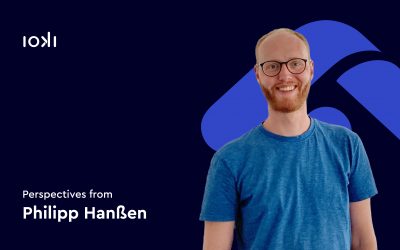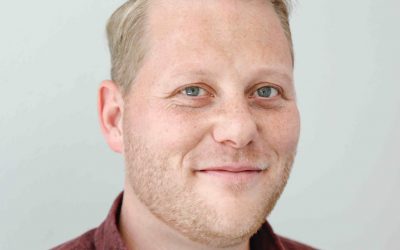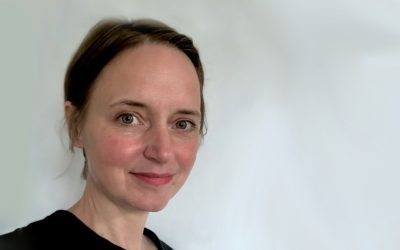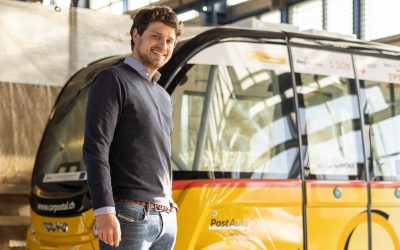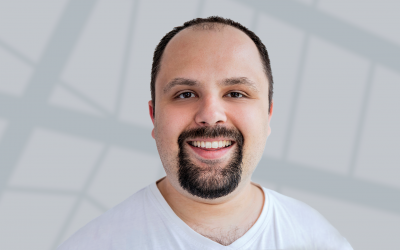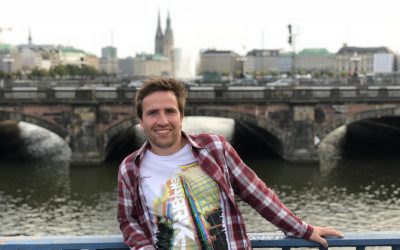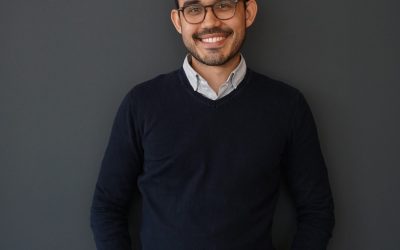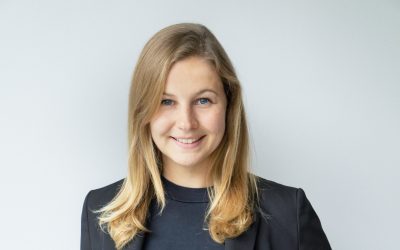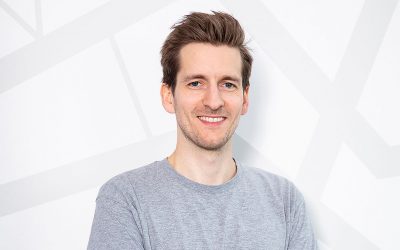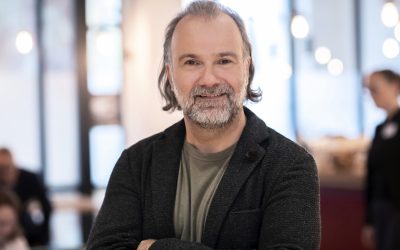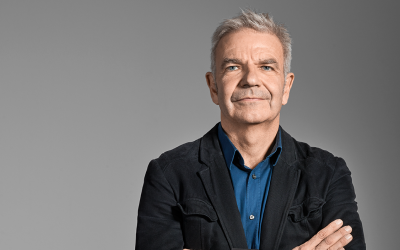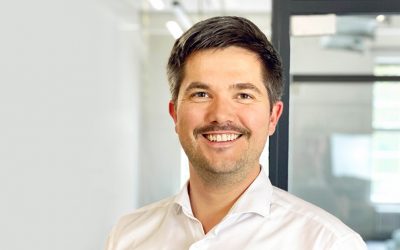Philipp Hanßen is a transport planner in ioki’s Mobility Analytics and Consulting (MAC) team. He started his career at ioki 2.5 years ago as an intern and working student in the MAC team and is currently writing his thesis for his master’s degree in transport engineering at ioki. The thesis sheds light on the framework conditions for the successful use of on-demand transport in rural areas. Since the end of 2021, he has been supporting the interdisciplinary team as a transport planner in actively shaping the transport revolution.
PERSPECTIVES Alexander Pullig
Alexander started his journey in the DB Group at DB Regio Bus. As a product owner of the “Wohin du Willst” app, he already dealt with the question of how classic public transport solutions can be digitalized. Since joining ioki, he has been helping to build the ioki platform for digital mobility and is constantly developing it. He has always wanted to improve mobility in rural areas, since he was always dependent on a car in the city where he grew up.
PERSPECTIVES from Hanna Kops
Hanna Kops is Head of Experience at Transport for London. She leads the digital design team which is responsible for the experience strategy, innovation, and design across all digital channels for one of the largest transport systems.
PERSPECTIVES from Martin Neubauer
Martin Neubauer has already made several stops in the mobility sector. He has been with PostBus for two years now, where he is responsible for the business area of autonomous driving. Since the end of 2020, he has also held his mandate as Executive Director of the Swiss Association for Autonomous Mobility.
Perspectives from Andreas Schwarzkopf
Andreas has been out and about in the mobility universe since 2010: from flinc, to the DB fleet service, all the way to his position as Head of Backend Engineering at ioki, Andreas has already stopped off at a number of stations. At ioki, he uses his 20+ years of IT expertise to develop new architectures and individual components for our operating system. In addition, he enhances existing architectures, among other things to open up our operating system to other transport providers – in a customer-centric and demand-oriented way. Andreas, thank you very much for taking the time.
Perspectives from Tyll Diebold
Tyll Diebold is a research assistant at the Institute for Transport Planning and Logistics at TU Hamburg. He has provided scientific support for the ioki Hamburg project from the very beginning and recently published the study “On-demand services as a component of public transport”. After completing his Master of Science in “Logistics, Infrastructure and Mobility” at TU Hamburg in 2016, he initially worked for an engineering office for a year before returning to TU Hamburg to complete his doctorate.
Perspectives from Andrés Vargas Díaz
Andrés studied civil engineering and specialised in the planning and operation of transport systems as a part of his studies. He joined ioki’s Mobility Analytics team in 2019 and was influential in creating the study on public mobility in Germany.
Perspectives from Alina Schuprin
As International Business Development Manager Alina Schuprin supports ioki’s mission to implement integrated mobility solutions not only on german roads, but all over Europe. Having a Master degree in industrial engineering Alina is experienced in anything that comes with digitalisation and its impact on established business areas. At ioki she combines this know-how with her personal goal to generate a positive impact on the environment with her daily work.
Perspectives from Jakob Kammerer
Jakob Kammerer is Head of Autonomous Mobility at ioki and thus responsible for developing the software that connects driverless vehicles with our operating system for digital mobility. After completing his B.Sc. in automotive engineering at the Technical University of Ilmenau in 2014, he progressed through several positions at Daimler, General Motors and the PSA Group into the field of mobility. Today we talk to Jakob about the supreme discipline of modern mobility: autonomous driving.
Perspectives from Jörg Starr
Jörg Starr has already passed through several stations in the automotive industry. He has already worked as a manager at Smart and Daimler. Today, the hydrogen mobility expert works for Audi. In addition, Jörg Starr is chairman of the Clean Energy Partnership (CEP). Technology, mineral oil and energy companies, gas producers and car manufacturers are working together to establish emission-free mobility with hydrogen and fuel cells across the board.
Perspectives from Prof. Peter Eckart
Prof. Peter Eckart studied product design at the Bergische Universität GHS Wuppertal and later at the Hochschule für bildende Künste Hamburg. In 2000, he founded the design studio unit-design, Frankfurt, Bern, together with Bernd Hilpert, with whom he also works for the Deutsche Bahn. Since 2000 Peter Eckart has been Professor of Integrative Design at the HfG Offenbach and since 2011 Vice President of the University. His central research field is mobility design. Since 2018, he has been leading the interdisciplinary LOEWE research project with Prof. Dr. Kai Vöckler in the fields of urban and transport planning, social science mobility research, multimedia technologies and the design entitled project-mo.de, which focuses on the role of design in changing mobility behaviour.
Perspectives from Jakob Muus
Jakob Muus is the founder and CEO of Tracks, a Berlin-based tech company with the goal of making road freight transport more efficient and sustainable through modern technologies. The platform developed by Tracks provides its users with analyses and recommendations for action, with which they can reduce the fuel consumption and CO2 emissions of their fleet. This not only improves the environmental balance but also the competitiveness of participating companies.
Newest article
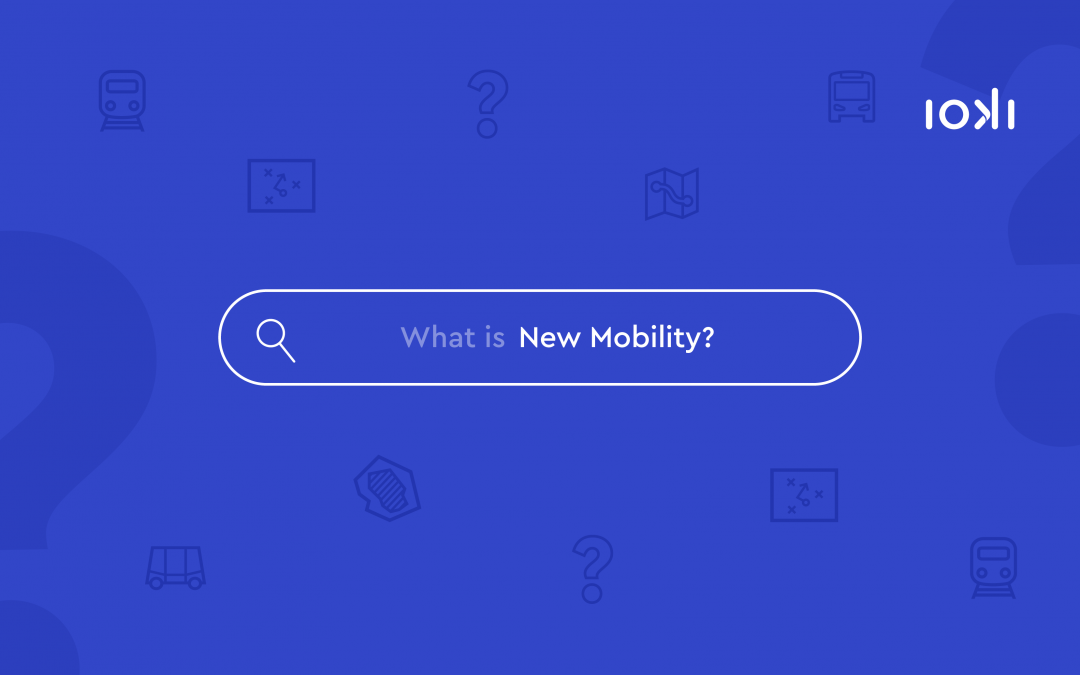
What is… New Mobility?
“New Mobility” is often referred to as “smart mobility” and is a collective term for many innovations relating to technology and mobility. These new mobility services combine digitalisation with traditional mobility and use the advantages of the internet. New mobility services include bike sharing, demand-responsive transport, ride hailing and smart parking.

